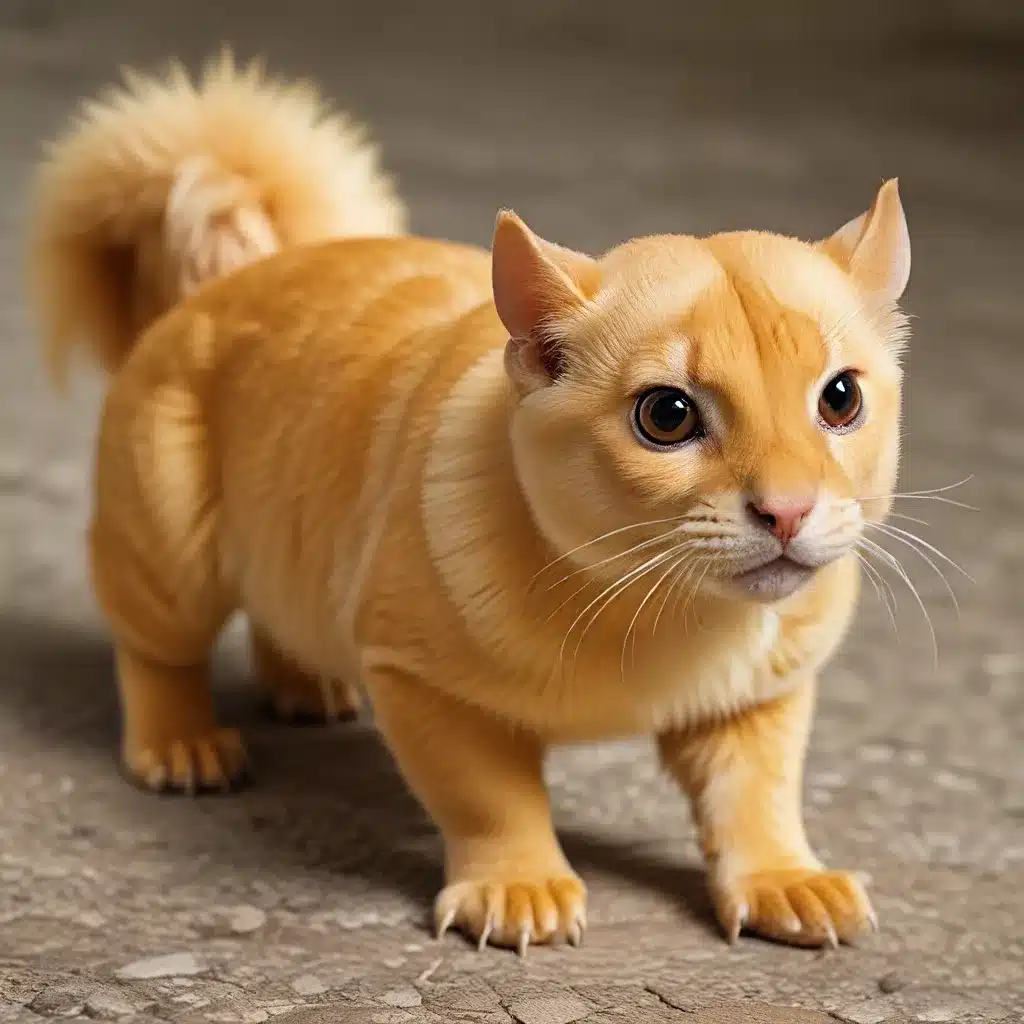
The Golden Dilemma: Navigating the Complexities of Exotic Pet Breeding
As an exotic pet enthusiast, I’ve always been drawn to the allure of golden-hued companions. These vibrant creatures captivate us with their stunning plumage, engaging personalities, and the sense of wonder they inspire. But, as is often the case with the exotic pet trade, the path to responsible ownership is paved with challenges and moral quandaries.
In recent years, I’ve found myself grappling with an unsettling truth: not all exotic pet breeders operate with the same level of ethical integrity. While some strive to uphold the highest standards of animal welfare and transparency, others seem to prioritize profits over the well-being of their furry, feathered, or scaly charges. It’s a conundrum that has left me questioning the very foundations of the industry I once wholeheartedly embraced.
Lifting the Veil: Exposing Unethical Breeding Practices
As I delved deeper into the world of exotic pet breeding, I uncovered a troubling pattern of practices that, frankly, made my stomach churn. Tales of overcrowded facilities, poor genetic diversity, and a disregard for the unique needs of these remarkable creatures began to emerge. It’s enough to make any conscientious pet enthusiast question the very foundations of the industry.
In one particularly heart-wrenching case, I learned of a breeder who prioritized quantity over quality, churning out litter after litter of golden-hued pets without regard for the long-term consequences. These animals often suffered from debilitating health issues, leaving their new owners to shoulder the burden of costly veterinary bills and the emotional turmoil of watching their beloved companions struggle.
It’s a scenario that plays out far too often in the exotic pet trade, and it’s one that’s deeply troubling to me. After all, these are not just commodities to be bought and sold – they are living, breathing creatures with complex needs and the capacity to suffer. Shouldn’t we be doing everything in our power to ensure their well-being and protect them from the ravages of unethical practices?
Redefining the Narrative: Embracing Ethical Breeding Practices
As I grappled with these disturbing revelations, I knew I couldn’t simply turn a blind eye. These animals deserved better, and I was determined to be part of the solution. That’s when I stumbled upon a glimmer of hope: the concept of ethical breeding practices for golden exotic pets.
At its core, ethical breeding is about prioritizing the health, welfare, and genetic diversity of the animals above all else. It’s about transparency, accountability, and a deep respect for the unique needs of each species. And it’s a movement that’s slowly but surely gaining traction in the exotic pet industry.
I’ve learned that the key to successful ethical breeding lies in the adoption of the LIMA (Least Intrusive Minimally Aversive) approach – a training and management philosophy that emphasizes positive reinforcement, minimal stress, and a deep understanding of the animals’ natural behaviors and needs.
By embracing this holistic approach, breeders can ensure that their golden exotic pets not only thrive physically, but also find joy and fulfillment in their daily lives. It’s a philosophy that extends far beyond the breeding process, encompassing every aspect of the animal’s care, from nutrition and housing to socialization and enrichment.
Cultivating Trust: Transparency as the Bedrock of Ethical Breeding
But ethical breeding is more than just a set of practices – it’s a mindset, a way of doing business that prioritizes transparency and trust. And that’s where I believe the real transformative power of this movement lies.
Too often, the exotic pet industry has been shrouded in secrecy, with breeders and suppliers operating behind closed doors and evading the scrutiny of the public eye. This lack of transparency has eroded the trust of conscientious pet owners, who are left to navigate a minefield of questionable claims and unverified information.
But the ethical breeders I’ve encountered are breaking this mold, embracing a new era of openness and accountability. They’re inviting prospective owners into their facilities, sharing detailed records of their breeding programs, and engaging in open dialogues about the challenges and triumphs of their work.
It’s a refreshing approach that not only fosters a deeper understanding of the exotic pet industry, but also empowers pet owners to make informed decisions that align with their values. After all, how can we expect to build a sustainable, compassionate future for golden exotic pets if we don’t have a clear window into the processes that shape their very existence?
The Golden Standard: Cultivating a Future of Ethical Exotic Pet Ownership
As I contemplated the path forward, I couldn’t help but feel a sense of renewed optimism. The rise of ethical breeding practices for golden exotic pets represents more than just a shift in business practices – it’s a revolution in the way we approach the entire ecosystem of exotic pet ownership.
By supporting breeders who prioritize transparency, animal welfare, and genetic diversity, we’re not only ensuring the health and well-being of these remarkable creatures, but also paving the way for a future where exotic pet ownership is synonymous with ethical stewardship.
And, as a passionate advocate for these golden-hued companions, I can’t help but feel a sense of duty to be a part of this transformative movement. After all, the exotic pets we cherish are not just objects of our affection, but living, breathing ambassadors for the incredible diversity of the natural world. Shouldn’t we do everything in our power to protect and nurture them?
So, my fellow exotic pet enthusiasts, I urge you to join me in this quest for ethical excellence. Let us embrace the golden standard of transparency, animal welfare, and responsible breeding practices, and in doing so, cultivate a future where the wonders of the natural world can be shared and celebrated for generations to come.

